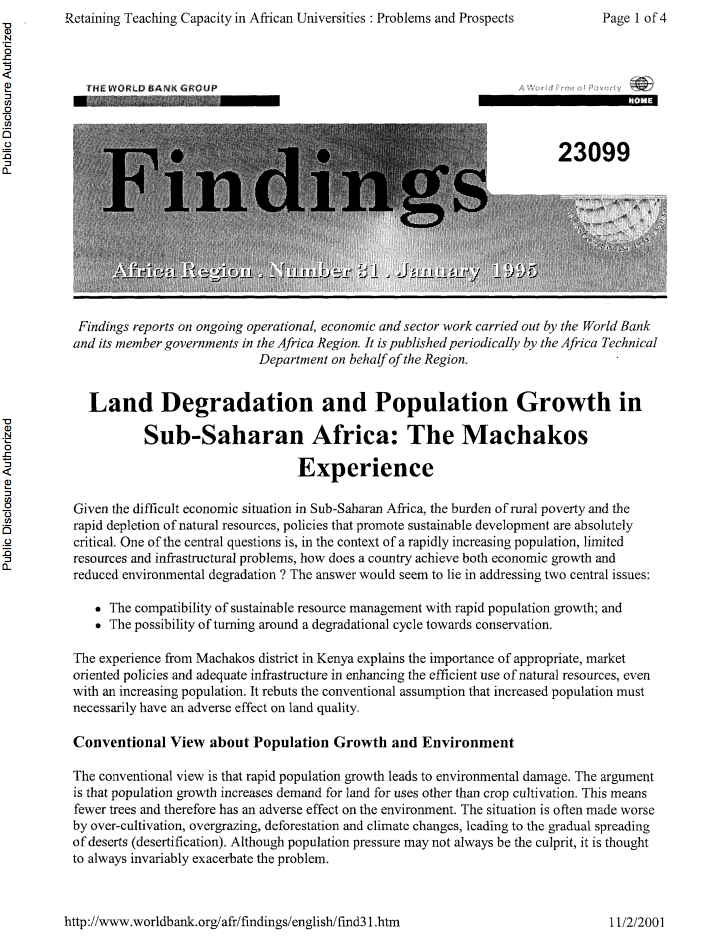Uganda Sustainable Land Management : Public Expenditure Review
This report summarizes the findings of
the Uganda Sustainable Land Management Public Expenditure
Review (SLM PER). The SLM PER was undertaken to achieve six
main objectives: (i) establish a robust data base on
SLM-related public expenditure that can support credible
empirical analysis; (ii) develop a sound methodology for
conducting SLM PERs, which could guide similar work in the
future; (iii) analyze the level and composition of SLM


